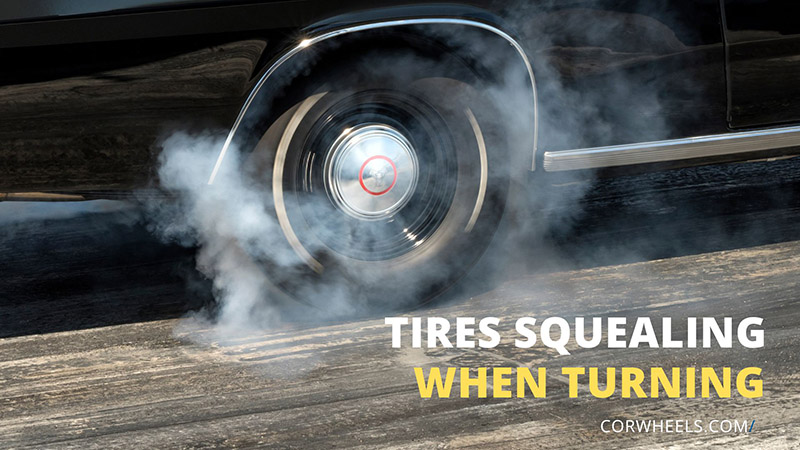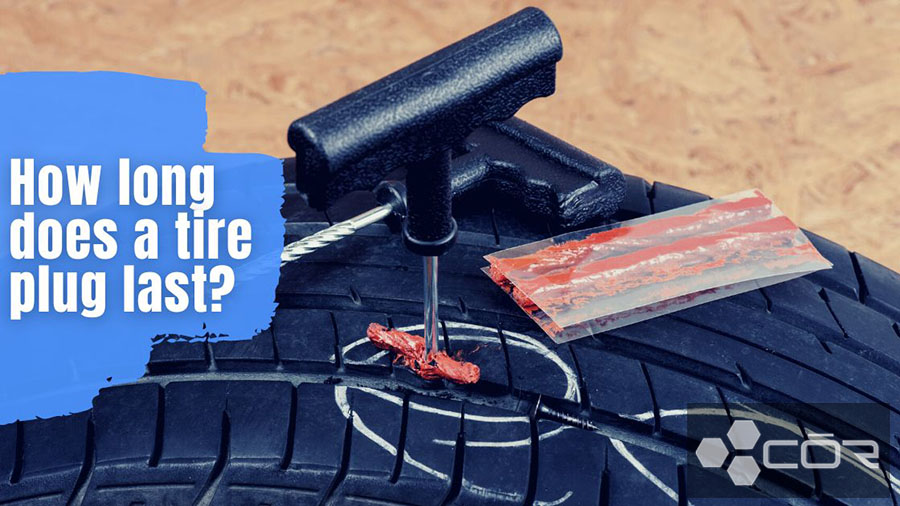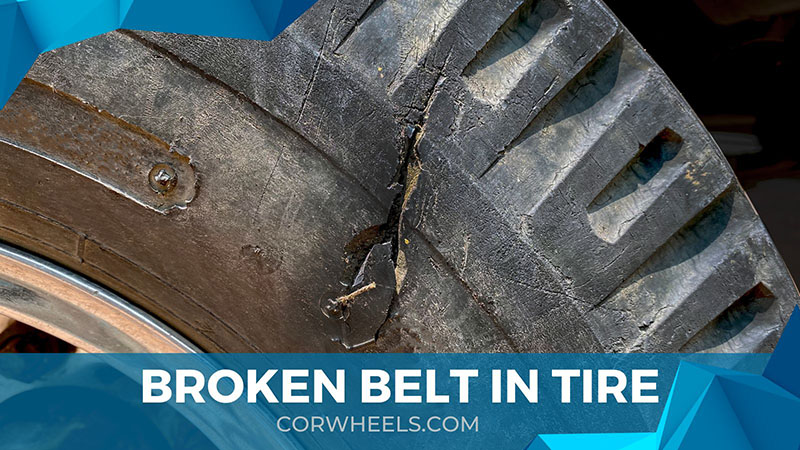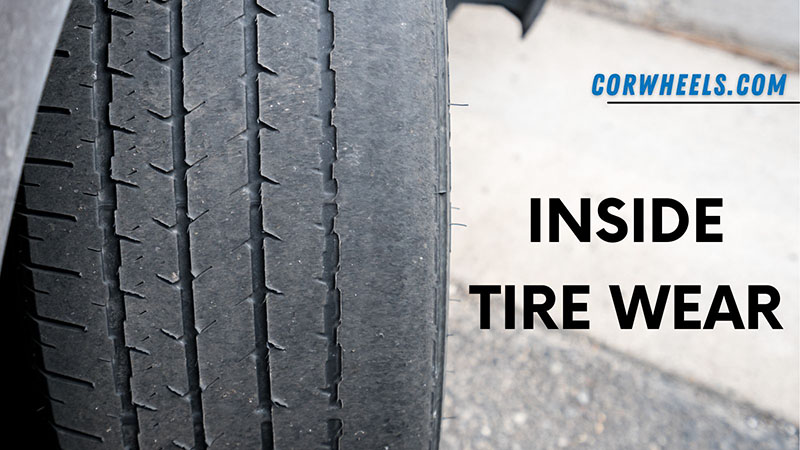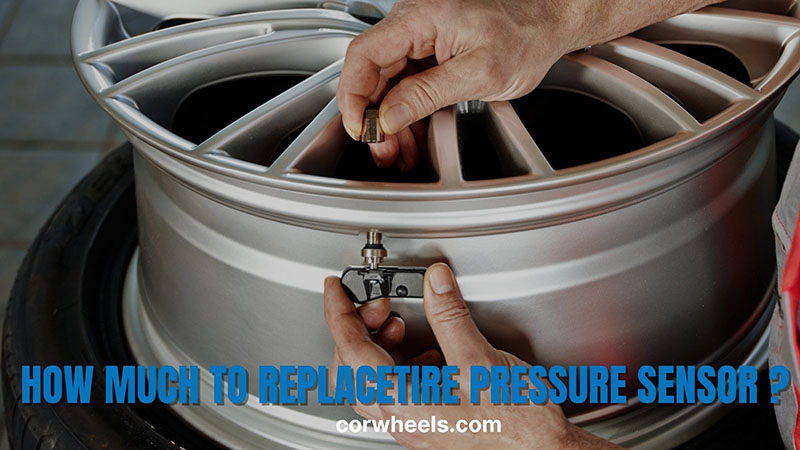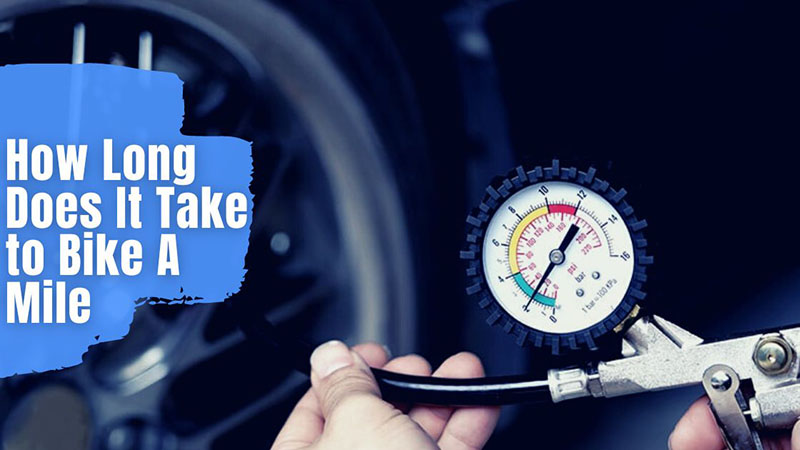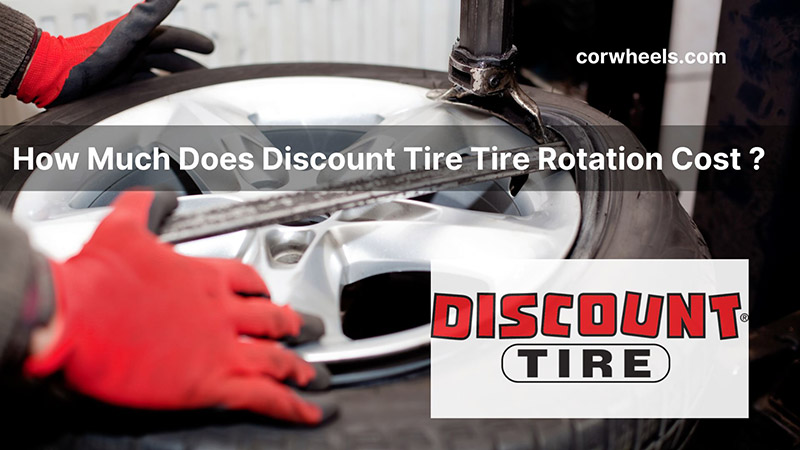Have you ever experienced the unsettling metal screeching sound when turning? It can be quite alarming and leave you wondering what might be causing it. Tires squealing when turning is a common issue many drivers face, and understanding the causes behind this noise can help you address the problem effectively.
Let’s delve into the various causes of tires squealing when turning, providing insights into why it happens and offering solutions to prevent or resolve this annoying noise.
In this article:
Why Do My Tires Squeal When I Turn Slowly?
The tire squealing sound when turning is due to the underinflated tires, as the rubber slides to 2 sides and causes traction loss along with a squeal. Poor alignment, uneven tire wear, brake/axle issues, and even your driving habits are also possible reasons.
Low Air Pressure
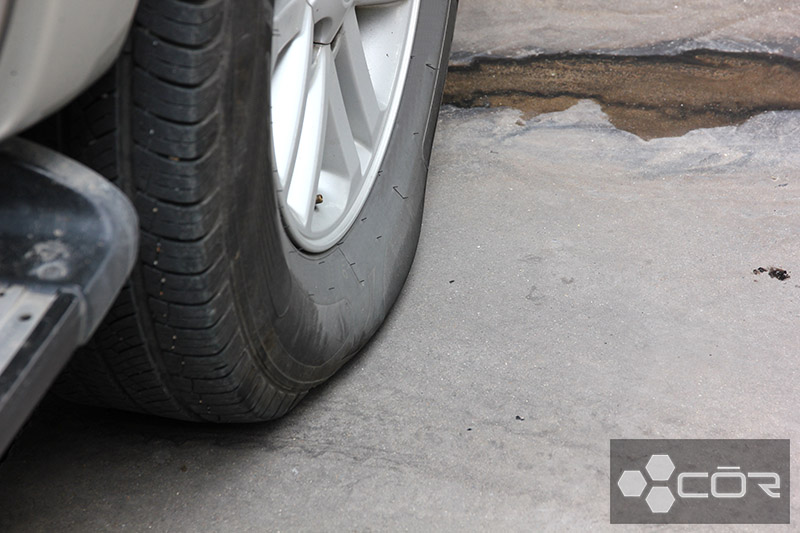
The tread on your tires is designed to provide traction and grip on the road. And when the tire pressure is low, it diminishes the tire’s ability to maintain traction with the surface, particularly during turns. This reduced traction can lead to the tires slipping and sliding, resulting in a squealing sound.
Uneven Treadwear
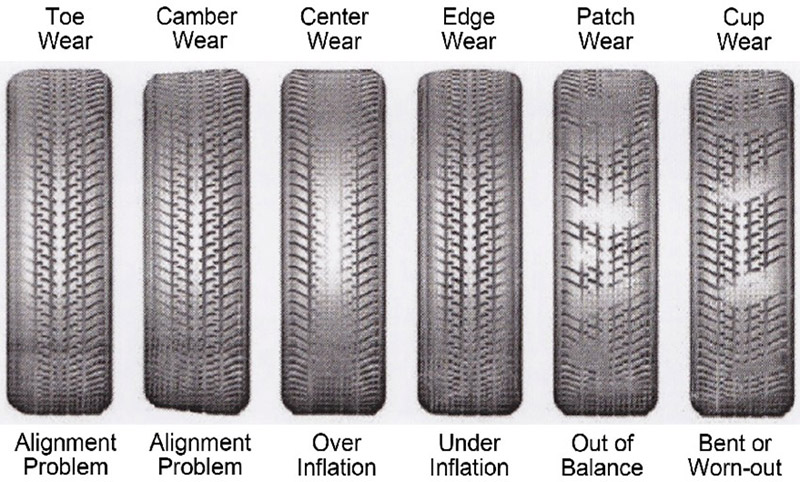
When the tread on a tire wears down unevenly, it can lead to an imbalance in traction between different parts of the tire. This imbalance affects the tire’s ability to maintain consistent contact with the road surface during turns.
As a result, the tire may lose grip and start to squeal. Several factors can cause uneven treadwear, including improper wheel alignment, suspension issues, or driving with overinflated or underinflated tires.
Bad Wheel Alignment
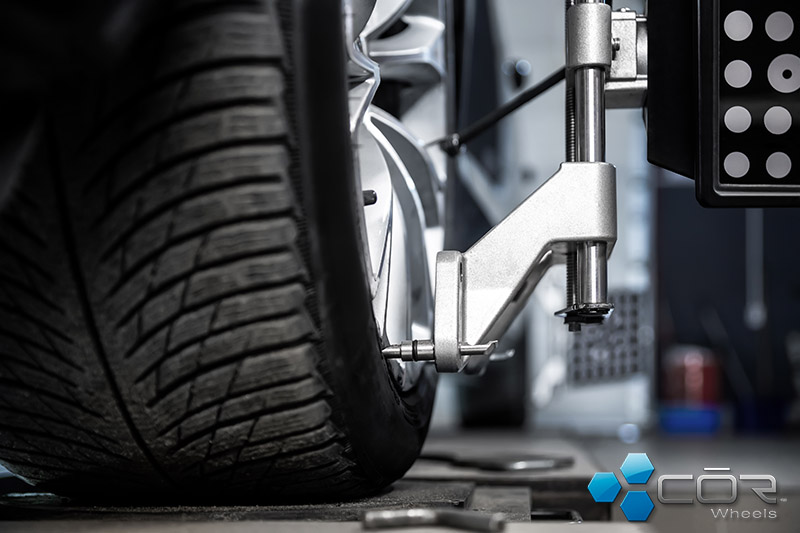
Wheel alignment refers to the positioning of the wheels in relation to each other and the vehicle. When the wheels are misaligned, it can disrupt the tire’s ability to make optimal contact with the road when cornering.
This leads to uneven weight and force distribution, causing the tires to slip and emit a screeching noise. Signs of bad wheel alignment include uneven tire wear, steering wheel pulling to one side, or the vehicle not moving straight.
Brake Issues
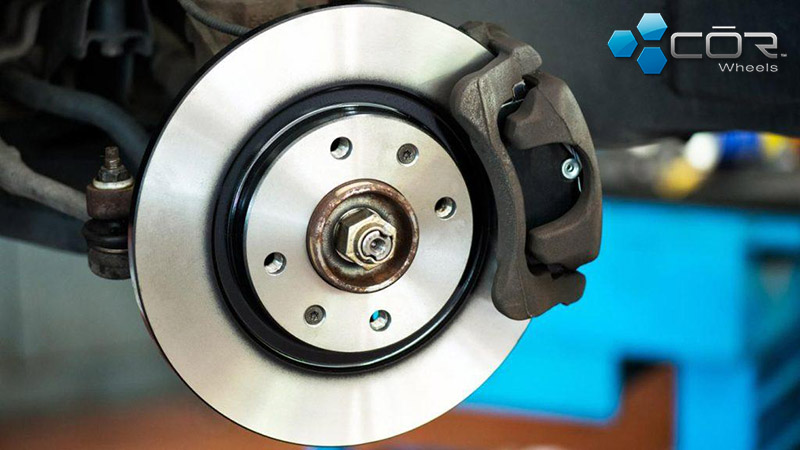
The braking system plays a crucial role in slowing down and stopping the vehicle, but certain problems can lead to unwanted noise. Worn brake pads are a common culprit.
When they become thin or worn down, the metal backing can come into contact with the rotor, causing a high-pitched squealing sound. Plus, glazed brake rotors or contaminated brake pads can also contribute to squealing when turning.
Tire Problems
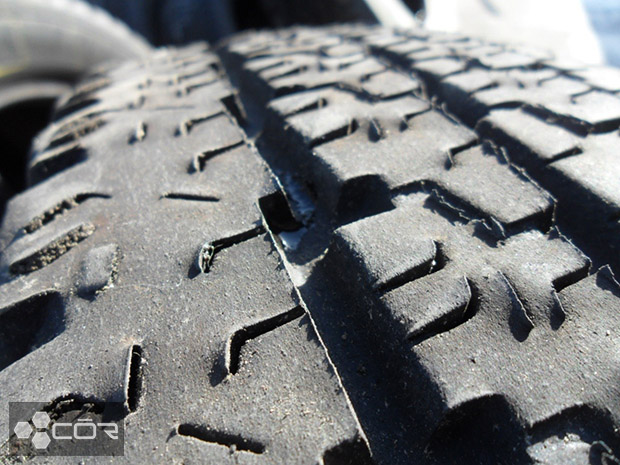
Typically, the tires themselves are the issue. Any tire can become problematic, whether brand-new, old, or of poor quality. High-quality tires employ a different tread composition than low-quality tires, which are frequently the least expensive option. This tread compound’s inability to stick to the road can make it screech.
They have less traction and are more likely to slide when they have worn tires, especially when there is sand or water on the road. So the tire starts to spin more quickly and makes a screaming sound.
But unexpectedly, I also encountered the squeaking issue when I just installed a new set of tires in 2020. When I brought the car to a mechanic, he explained that the extra rubber left over from the molding process made new tires occasionally squeak. Usually, this rubber will lose its elasticity after a couple of hundreds of miles.
Axle Issues
When there are problems with the axle, it can affect the tire’s ability to rotate smoothly, leading to squealing noises. Worn or damaged axle components, such as CV joints or bearings, can create friction and instability, especially during turns. This friction can cause the tires to slide and emit a squealing sound.
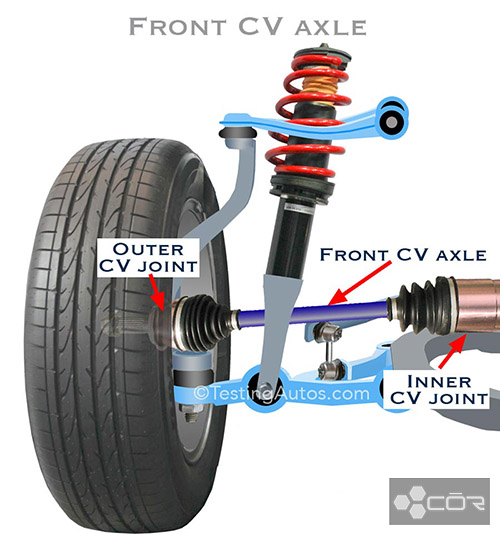
If you suspect axle issues as the cause of the noise, it is essential to have your vehicle inspected by a qualified mechanic. They can diagnose and repair axle problems, which may involve replacing worn components or addressing misalignment.
Bad Driving Habits
Aggressive driving maneuvers, such as sudden acceleration, hard braking, or sharp turns, can put excessive stress on the tires. These actions can lead to a loss of traction and cause the tires to squeal. Additionally, oversteering or jerky steering inputs can also contribute to tire squealing.
It is important to adopt smooth and controlled driving techniques when making turns. Gradually accelerating and decelerating, as well as maintaining a moderate speed through turns, allow the tires to maintain proper grip and prevent excessive strain.
Other Issues
Besides the above causes, there are some issues that make this problem occur, including broken belts, damaged wheel bearings, dry steering elements, low-power steering fluid, etc.
Although these are unrelated to the tires, they might cause them to screech. Some causes could result in wheel or suspension squeals, which could be mistaken for tire noises.
How Should You Repair The Tires When It Squeaks
The first thing to do is check and inflate the tire, then look for tire damage like uneven wear, feathering, cuts, etc. It’s best to keep your tires rotated and aligned every 5,000 to 6,000 miles and replace them when they wear down to 2/32 inch or below.
When fixing damaged tires, you must adhere to the law. Your mechanic must therefore be familiar with the tire supplier’s regional safety regulations and business practices.
To prevent tire-rim mismatching when replacing high-performance tires, you should be aware that most of these tires have asymmetrical tread patterns.
Here are my tips for better rides:
- Wherever you drive, always have a spare tire.
- At all times, make sure the spare tire is fully inflated.
- Never drive at high speed when using a space-saving tire.
- Never use more than 1 space saver when driving.
How To Prevent Tires Screeching When Turning
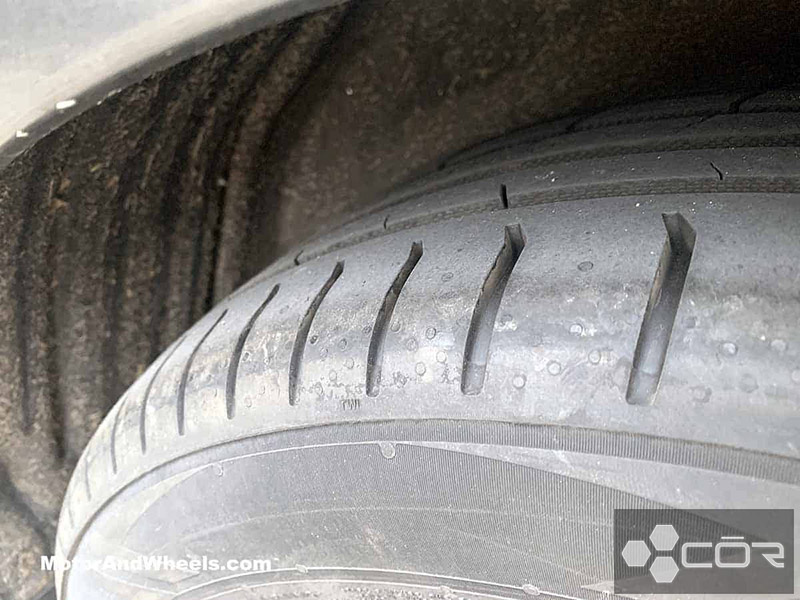
To prevent your tire from making noise when turning, routinely check tire pressure, maintain tires routinely, slow down at every turn, use the steering wheel gently, and steer clear from icy, wet roads as much as possible.
Routinely Pressure Checks
Routinely checking tire pressure is a simple yet effective way to prevent your car squeaks when turning. Proper tire inflation is crucial for maintaining traction and stability on the road. When tire pressure is too low, it increases the surface area in contact with the road, leading to excessive friction and potential tire slippage.
On the other hand, overinflated tires reduce the contact patch, resulting in reduced grip and control. By regularly checking tire pressure and ensuring it is within the recommended range, you can optimize the performance of your tires and minimize the chances of screeching when making turns.
Adjust Driving Habits
Adjusting driving habits is a crucial step in preventing tires from screeching when turning. How you handle your vehicle directly impacts tire traction and control. First and foremost, it’s essential to approach cautiously and gradually reduce your speed before entering the turn.
This allows the car’s weight to shift smoothly, improving stability and grip. Avoid sudden or aggressive steering inputs that can cause the tires to lose traction. Instead, make smooth and controlled turns by gently and steadily steering through the curve.
Regular Maintenance
Regular maintenance is a vital aspect of preventing tires from screeching when turning. Keeping your vehicle in good condition ensures that all components, including the tires, are functioning optimally. Here are a few maintenance tasks that can help prevent tire screeching:
- Tire rotation
- Wheel alignment
- Suspension system inspection
- Brake maintenance
Frequently Asked Questions
Is It Bad If Your Tires Screech When Turning?
Yes, it is generally bad if your tires screech when turning. Screeching tires usually indicate a loss of traction, which can be caused by various factors such as worn tires, improper tire pressure, or aggressive driving.
It not only reduces your control over the vehicle but can also lead to accelerated tire wear and potentially dangerous situations.
Is It Normal For Wheels To Squeak?
No, it is not normal for wheels to squeak. Squeaking wheels can be a sign of a problem, such as worn brake pads, a loose or damaged wheel component, or inadequate lubrication.
How Much Does It Cost To Fix A Squeaky Wheel Bearing?
On average, the cost can range from $150 to $600 per wheel, including parts and labor. Still, the actual price to fix a squeaky wheel bearing can vary depending on several factors, such as the make and model of your vehicle, the location, and the extent of the damage.
The Bottom Line
Tires squeak when turning can be a sign of underlying issues that require attention. Once you understand the causes, you can take proactive steps to prevent or address tire squealing.
Regular maintenance, including tire inspections, proper inflation, wheel alignments, and brake checks, can go a long way in ensuring optimal tire performance and a quieter driving experience.

